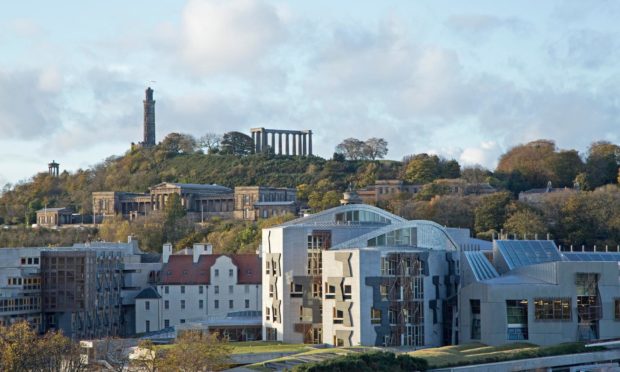Election promises by the SNP, Labour and Conservatives are disconnected from “fiscal reality”, according to a critical analysis of their manifestos.
The Institute for Fiscal Studies (IFS) said the three largest parties underestimate how hard it will be to pay for pledges and are failing to level with voters on the scale of the challenge.
They say the Scottish Government’s budget is likely to be tight in certain areas from next year, even before the parties’ new spending plans are accounted for.
Manifesto pledges for the three largest parties were examined due to time and resource constraints, the think tank said.
David Phillips, associate director at the IFS, said: “The SNP and Scottish Labour envisage what they might think of as a Scandinavian-style future – with a smorgasbord of new entitlements for Scottish residents.
“In contrast, the Scottish Conservatives’ public services and benefits offer, while an increase on what is there today, is less expansive with an aim instead of modestly reducing tax.
“Another thing these manifestos have in common is, unfortunately, a disconnect from the fiscal reality the next Scottish Government is likely to face.
“Rising demand for, and costs of, health and social care could easily absorb three-quarters of the projected cash increase in the Scottish Government’s budget over the next few years, substantially more than the SNP and Conservatives have budgeted for.”
Scotland’s politicians have really failed to level with voters on the challenges that lie ahead.”
David Phillips
In an online discussion on Monday, Mr Phillips said the Conservatives’ plan for a “double lock” on NHS spending was effectively promising the same cash twice.
He said the Scottish Government’s overall budget was projected to increase by about £4.9 billion over the next four years.
However, increased costs for the NHS and social care are predicted to absorb 75% of the total, making spending promises elsewhere more difficult.
Delivering pledges outside the healthcare portfolios would likely mean tax rises or cuts elsewhere, he added.
Mr Phillips said: “Scotland’s politicians have really failed to level with voters on the challenges that lie ahead.”
Cost of independence
Discussing the fiscal situation for an independent Scotland, Mr Phillips said: “It’s clear that an independent Scotland would start life with a large deficit.
“It would need to get that down and that would mean difficult choices. That doesn’t mean Scotland can’t afford to be independent; Scotland is a relatively rich country.
“But it would need to make sure it cut its cloth to fit the size of its own purse, rather than having fiscal transfers from the rest of the UK.”
SNP leader and First Minister Nicola Sturgeon claimed her plans were affordable.
“The commitments in our manifesto will not require cuts or tax rises,” she said on Monday.
Stressing the plans were based on the Scottish Government’s medium-term financial strategy, she said the commitments came in about £0.5 billion below the central forecast.
Ms Sturgeon said: “I am confident in the commitments we have made and the projections they are based upon.”

